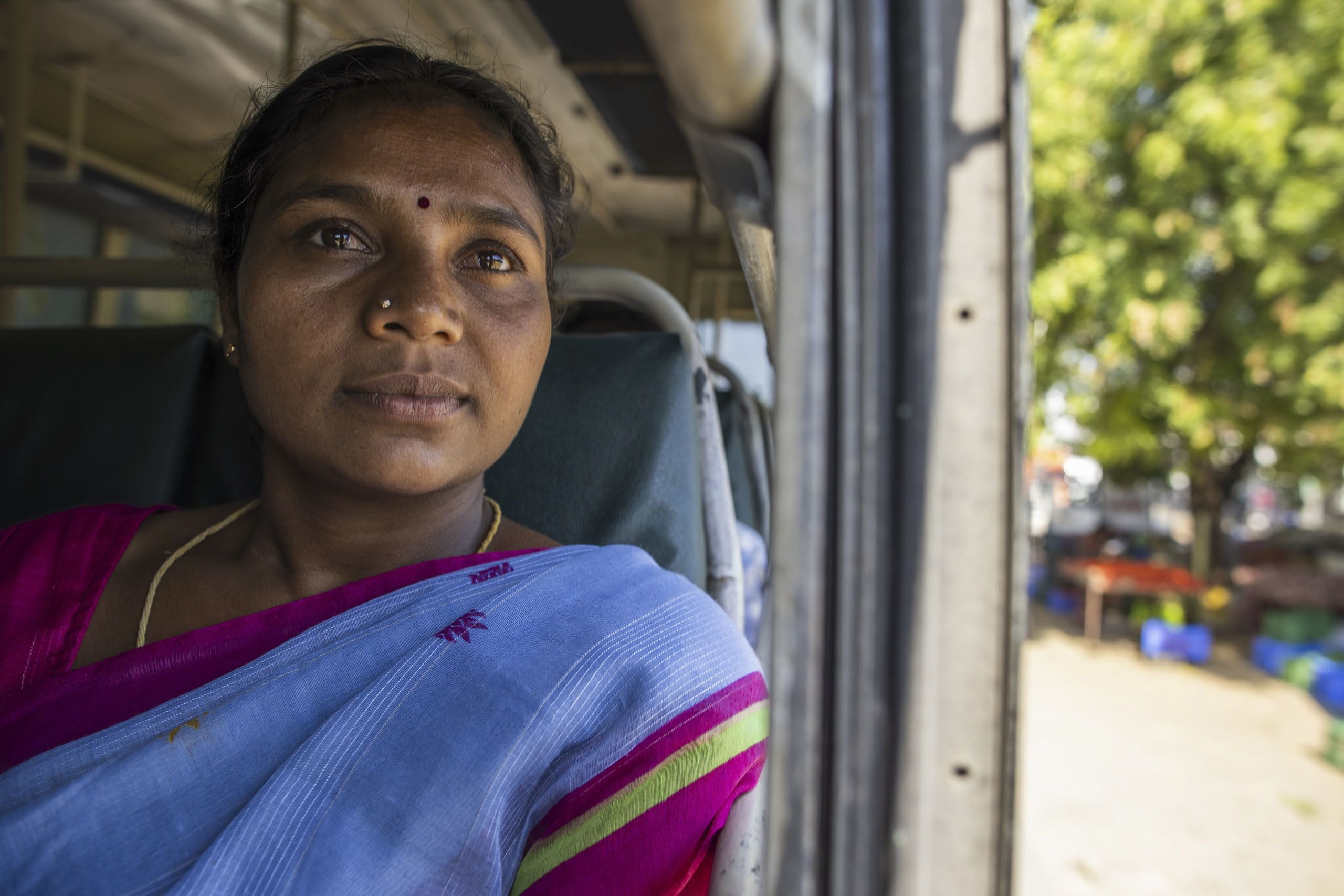12 People We Met in 2024
Around the world with IFC
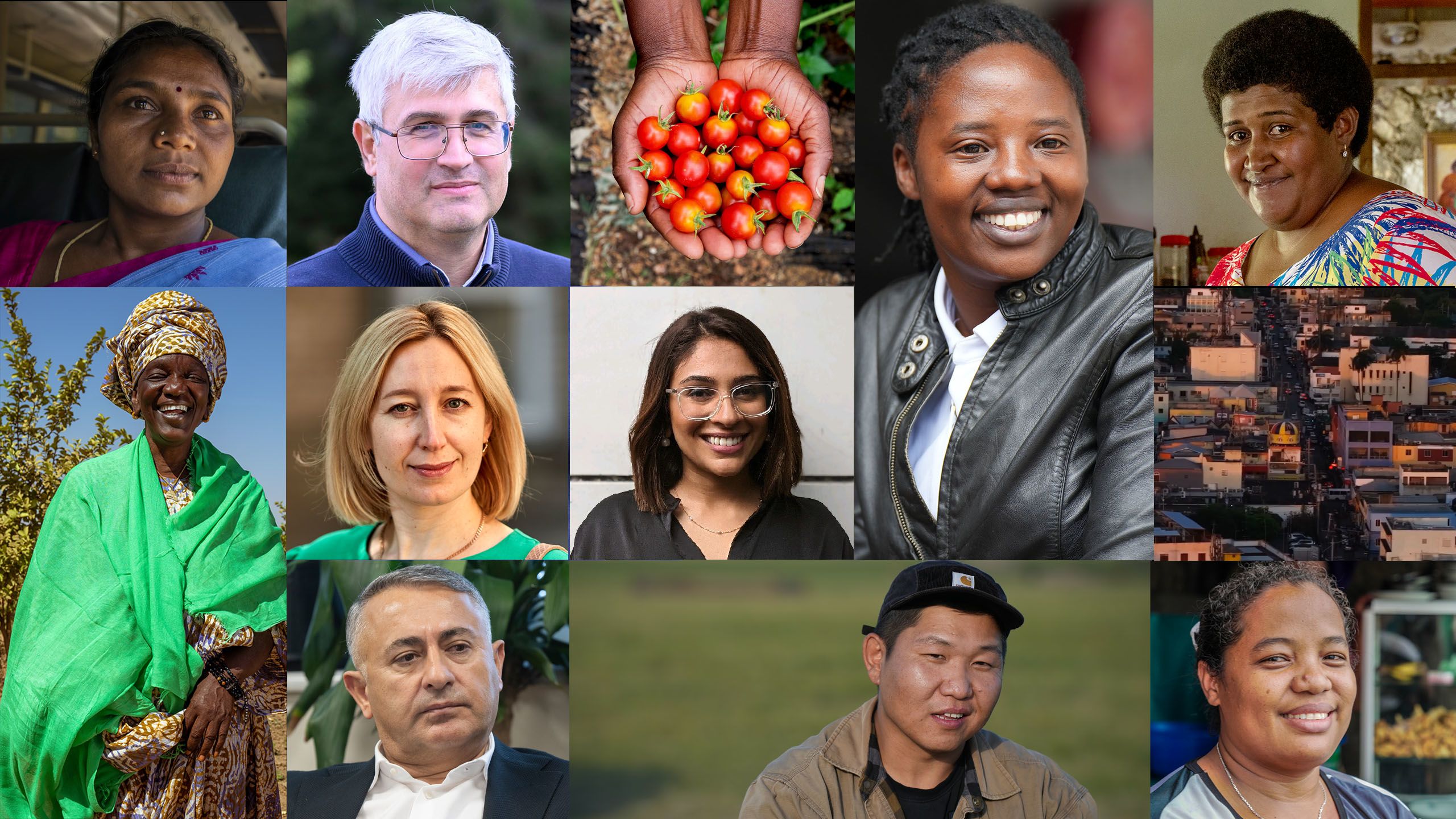
Throughout the last 12 months, we met many people whose stories moved and inspired us. These entrepreneurs, activists, farmers, shopkeepers, factory workers, and others come from different backgrounds, but they share one important thing in common: their lives have been positively impacted by private sector financing. As 2024 draws to a close, we’re revisiting 12 remarkable people who welcomed us into their world—transfixing us with stories of ambition, vision, and hope for a better future.
Senegal: Encouraging Investment in Women Farmers
“I have a quality no one counted on: Endurance.”
Korka Diaw thinks of herself as a farmer—and indeed, she operates a successful 150-hectare (370 acres) rice farm in the Senegal River Valley. But she is also celebrated across Senegal for decades of work as an activist for women’s rights. Because women farmers are traditionally overlooked and underfunded, Diaw founded a 16,000-member nationwide network that offers them training and information on agricultural techniques, insurance, and business development. The group also provides rural women information on health care, and is involved in shaping women's access to medical resources. “There was no organization like [this] when I started farming, but I want to make sure other women have an easier time than I did,” she says. IFC client Baobab Group has made it a priority to help Senegal’s women rice farmers increase their productivity, and the volume of loans disbursed to women farmers increased by 54 percent between 2021 and 2023.
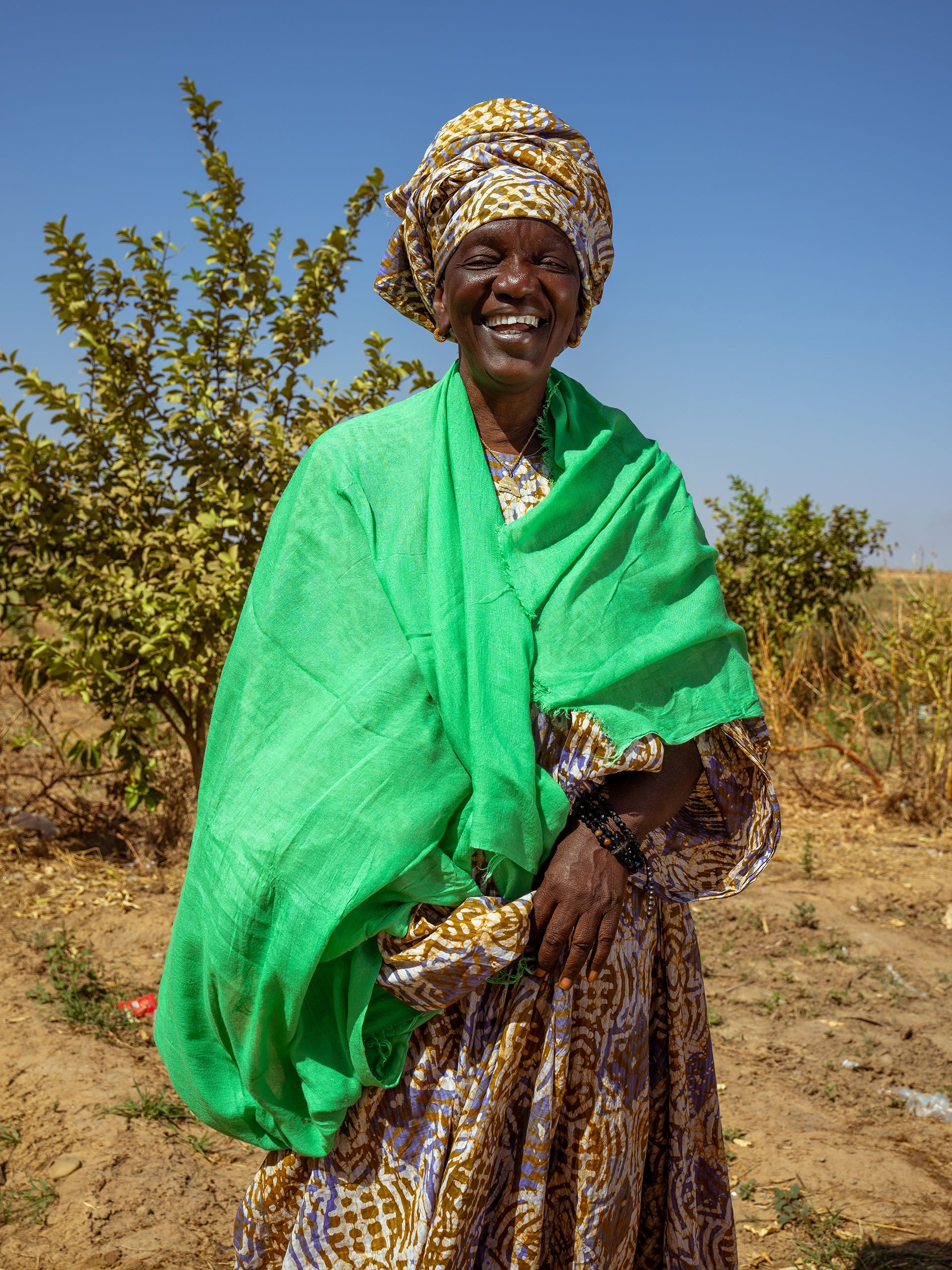
Ukraine: Developing Women Leaders
“I thought: ‘I am a woman and in management - what am I waiting for?’”
For Tetiana Shyk, as for millions of internally displaced Ukrainians forced to leave their homes because of Russia’s invasion, starting over in a new city has not been easy. In her hometown of Bakhmut in eastern Ukraine, Tetiana managed nine homeowner associations (HOAs)—loose collectives of residents who maintain and improve their buildings and communal spaces, often through funding from local and regional governments. But when her hometown was destroyed, her career was also lost. To prepare for her next chapter, she turned to a training program developed with IFC’s help and funded by the European Union—the School of Women's Leadership—that empowers women leaders to implement IFC’s recommendations for resettling and integrating internally displaced persons into new communities. Attending these sessions "made me realize that women like me in multifamily building management are leaders,” says Tetiana. “I thought: 'I am a woman and in management—what am I waiting for?'” The School of Women’s Leadership is part of IFC’s Energy Efficiency Fund (EEF), funded by the Ukrainian government, the European Union, and the German government. The EEF helps homeowners' associations restore war-damaged residential buildings. Over 330 buildings have been restored so far and 310 more are under construction, allowing more than 57,100 families to return and live in their own homes.
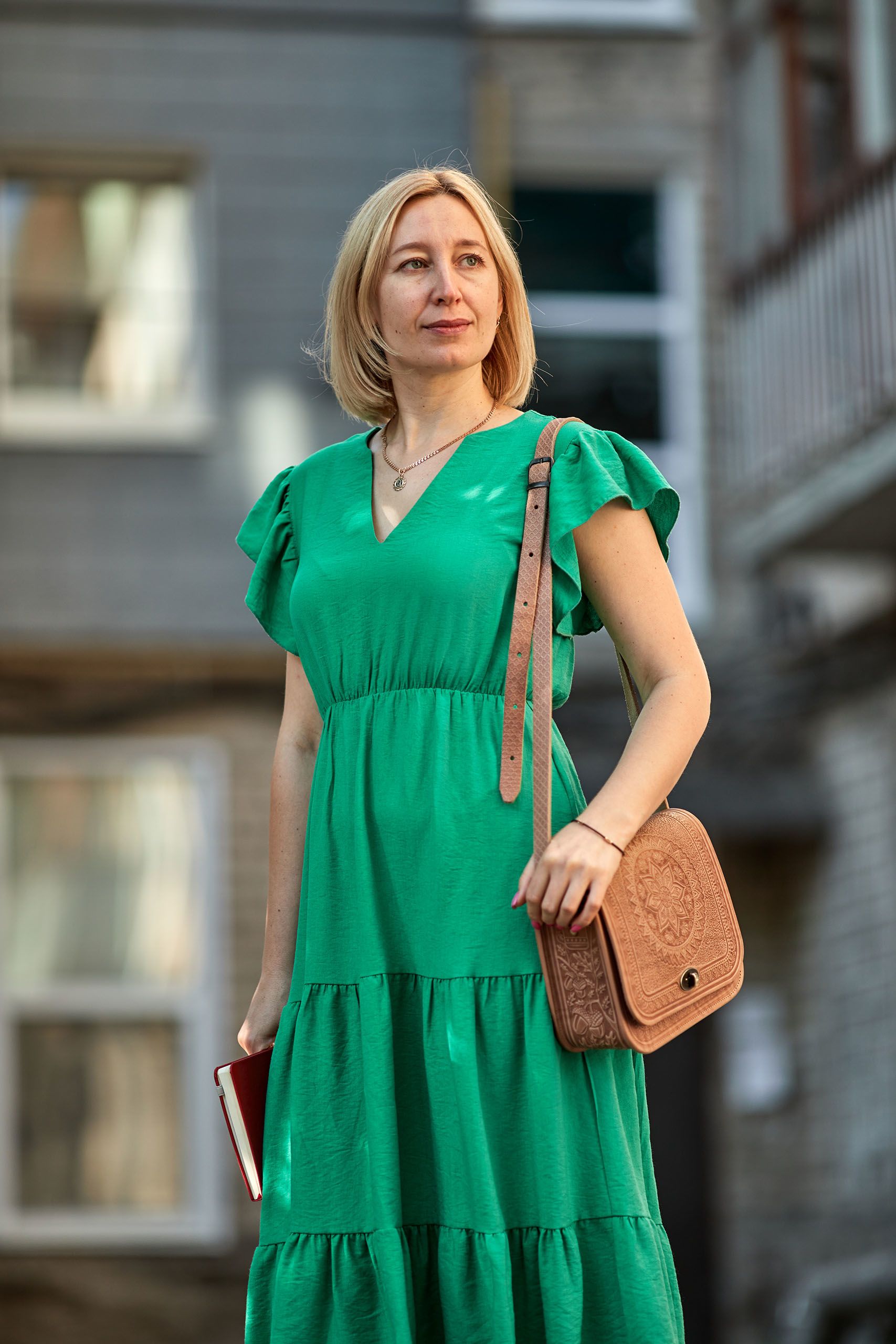
S. Sudha. Photo by JDot/IFC.
S. Sudha. Photo by JDot/IFC.
India: Overcoming Barriers to Business
S. Sudha's spice workshop. Photo byJDot/IFC.
S. Sudha's spice workshop. Photo byJDot/IFC.
“I was told, ‘A girl cannot make it big.’ There were a lot of struggles, but I never gave up.”
The Government of India’s flagship program, Deen Dayal Upadhyaya Antyodaya Yojana-National Rural Livelihoods Mission (DAY-NRLM), is mobilizing poor and vulnerable people, particularly women, into self-help groups (SHGs) to help them access small loans. These loans go a long way: Just ask S. Sudha, who joined a SHG in her village years ago. With training and a loan from her SHG, she purchased a spice grinder and began selling spices in her village. Expanding her business, Sudha Spices, required more money, but "I faced many hurdles initially when I went to banks for loans,” she remembers. “They were hesitant to give me a loan because I am a tribal woman who lives in a reserve forest.” Now, with support from financial institutions that serve this “missing middle” tier of borrowers—people whose businesses are too big for microloans, but too small for traditional bank loans—she runs a spice shop and sells products online. Collaborations between the Government of India, the World Bank, the Tamil Nadu state government, and IFC have helped Indian women entrepreneurs like her achieve their dreams. Since 2011, the World Bank’s investment of $750 million covering 13 states has helped DAY-NRLM mobilize more than 100 million rural women into more than 9 million self-help groups across India. IFC, in collaboration with the World Bank, has complemented this effort with a gender advisory program that helps borrowers in self-help groups graduate to individual loans from financial institutions.
Leba Sekoula at home in Fiji. Photo by Armando Gallardo/IFC.
Leba Sekoula at home in Fiji. Photo by Armando Gallardo/IFC.
Fiji: Accessing Clean, Convenient Water
“The water from the tank is very tasty because it comes direct from heaven.”
When Leba Sekoula places a pot of chicken and cassava soup on a stove to heat for her children's lunch, she remembers how cumbersome the cooking process was before a water tank was installed outside her home in Vatani, Fiji. In the past, she had to walk to the village center at dawn, joining other women waiting to receive water from a community tank. Now she prepares the dish with boiled rainwater harvested from a large water tank just steps from the stove. “[Before], we spent the whole day fetching water,” says Leba. “Now, we stay with our family, or earn money.” Fijians like Leba have access to convenient, clean drinking water following the 2017 issuance of the country’s first-ever sovereign green bond, which was supported by IFC. Proceeds of the green bond are now helping improve access to clean water for more than 42,000 people like Leba in 120 of Fiji’s rural communities. The impact on public health across the villages’ nearly 200 residents was immediate, says Leba, who is also a community health worker. “Before the water tanks came into our village, plenty of us got fevers and skin diseases, like scabies in children and ringworm in elders,” she says. “But when the water came into the village, our skin got brighter and cleaner.”
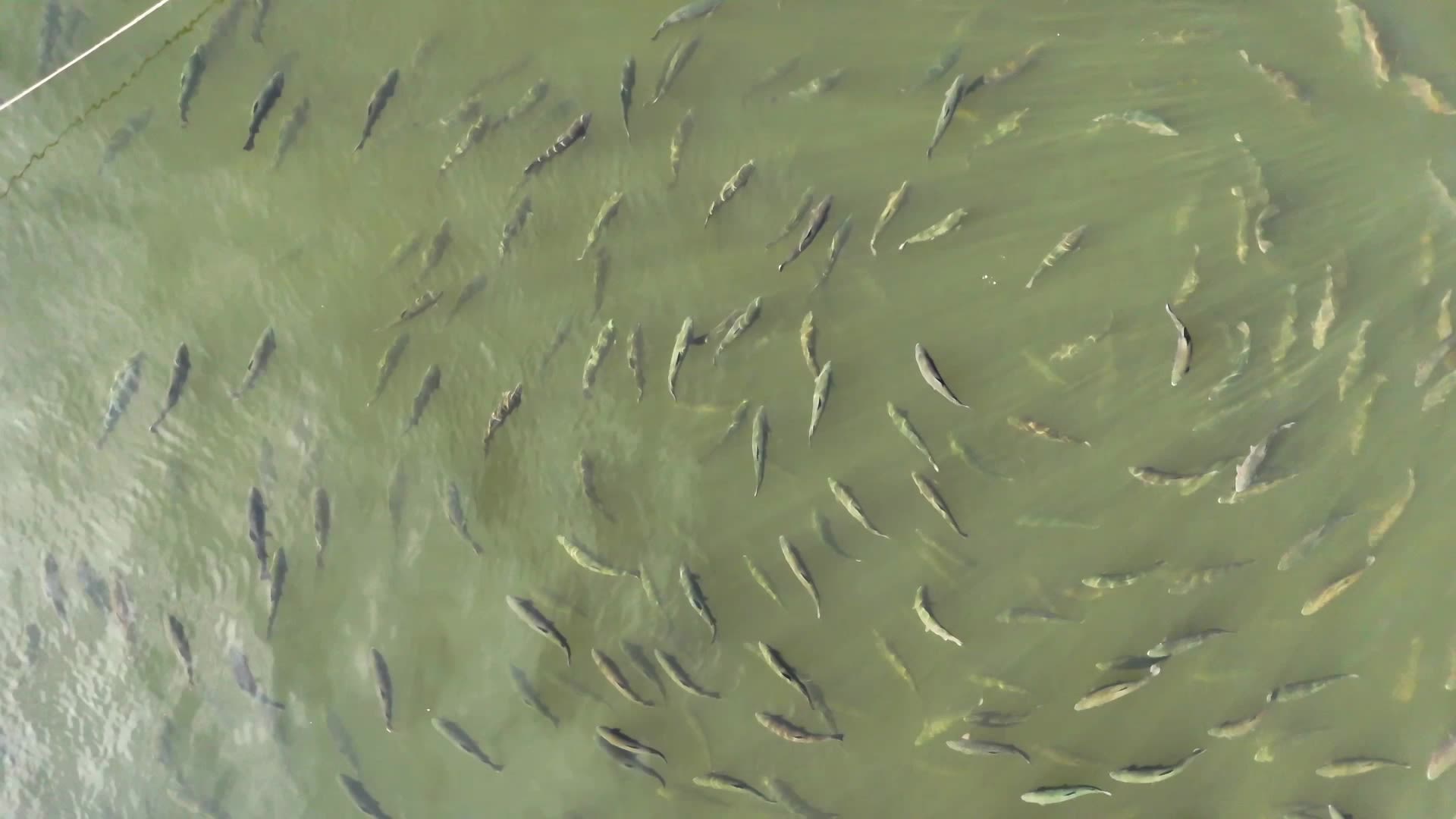
Romania: Cultivating Sustainable Fisheries
“We must work in harmony with the environment. Preservation is what is most important to us.”
George Ionescu-Vitzu, a fish farmer in central Romania, has often reflected on the contradictions of his region. Although Romania boasts an abundance of freshwater resources, prospects are mixed: water pollution threatens health, unpredictable rainfall stymies planning, prolonged droughts cause economic losses and spur migration, and water management challenges even the experts. So in 2016, Ionescu-Vitzu, in a leap of faith, cofounded a fishery cooperative that prioritizes sustainability. “For our businesses to be truly successful, we must focus on farming healthy fish within a healthy natural environment,” he says. His idea resonated with others: Banca Transilvania SA, which received €100 million loan from IFC to improve water management practices and contribute to the sustainability of ocean and freshwater resources, provided key funding to Ionescu-Vitzu’s cooperative. With support from Banca Transilvania and the EU, the cooperative has developed a sustainable, market-leading strategy, elevated its operating standards, and influenced the broader industry.
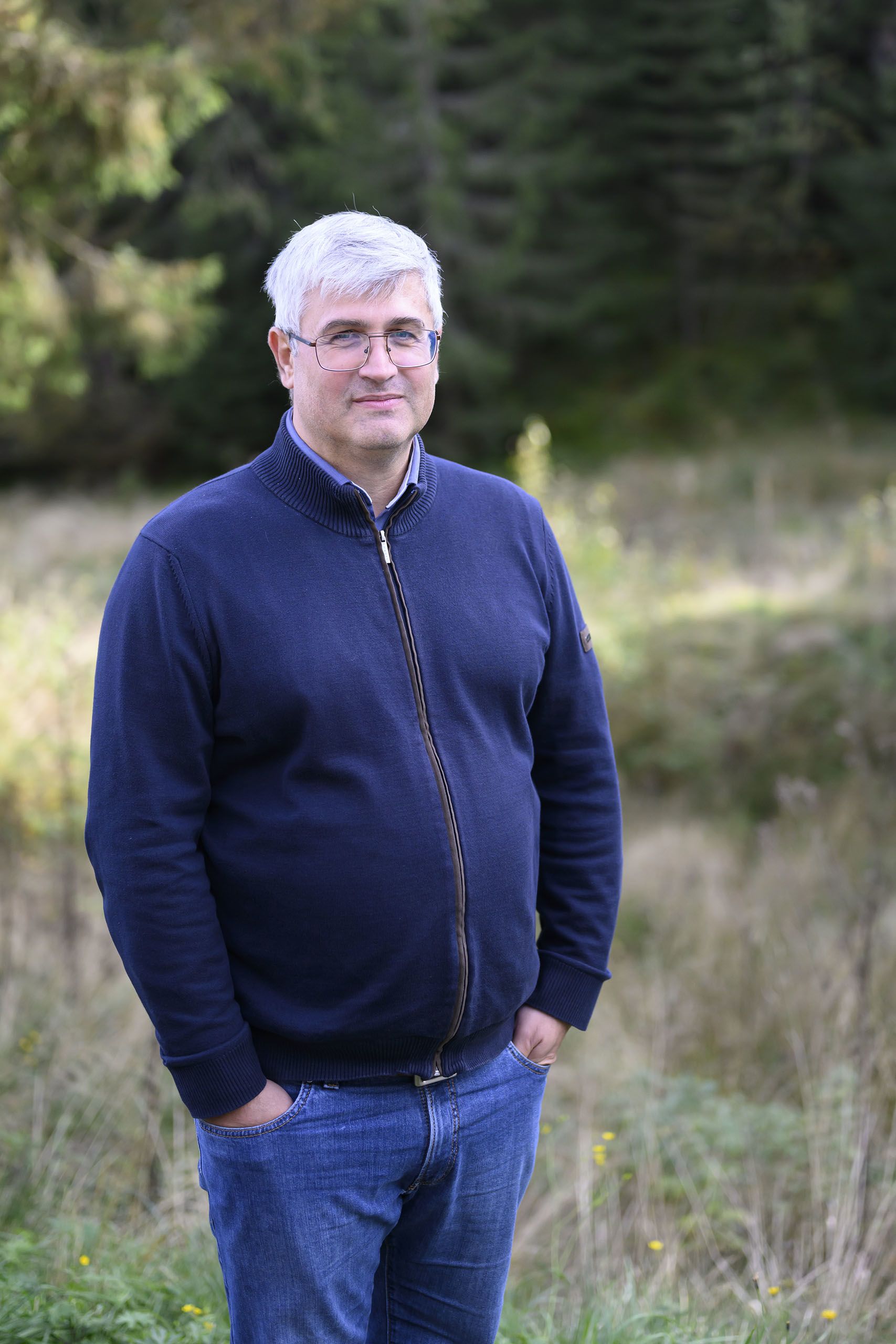
Haiti: Training Farmers for Self-Sufficiency
“The more we produce in Haiti, the more the money stays in Haiti, giving us the ability to take care of our children, families, and community.”
Kettelie, a farmer from the mountains high above Port au Prince, Haiti, remembers her first cherry tomato harvest, when well-meaning neighbors ran to tell her, “Someone shrunk your tomatoes.” But her neighbors stopped worrying when they saw how quickly she was able to sell the tiny fruits to a local produce aggregator that supplies the city’s top hotels, restaurants, and supermarkets. Until recently, cherry tomatoes and other high-end produce were imported, but that’s starting to change because of an IFC Haiti Horticulture advisory project that is connecting Haitian smallholder farmers like Kettelie to a local firm. The project is supported by the Private Sector Window of the Global Agriculture and Food Security Program (GAFSP), which works closely with a local farming association as well as the Haitian Foundation for Sustainable Agricultural Development. Together, the organizations collaborate to offer farmers training and inputs, with the goal of boosting domestic production and producing sustainable incomes. Despite the country’s large number of farmers, Haiti’s ongoing struggles with political instability, gang violence, and vulnerability to extreme weather pose formidable challenges for workers in the agricultural sector. Such challenges have made the GAFSP program critical for Kettelie and her husband Josué, who also participates in the training initiative. “It has shown us how important it is that Haiti can be self-sufficient,” she said. “The more we produce in Haiti, the more the money stays in Haiti, giving us the ability to take care of our children, families, and community.”
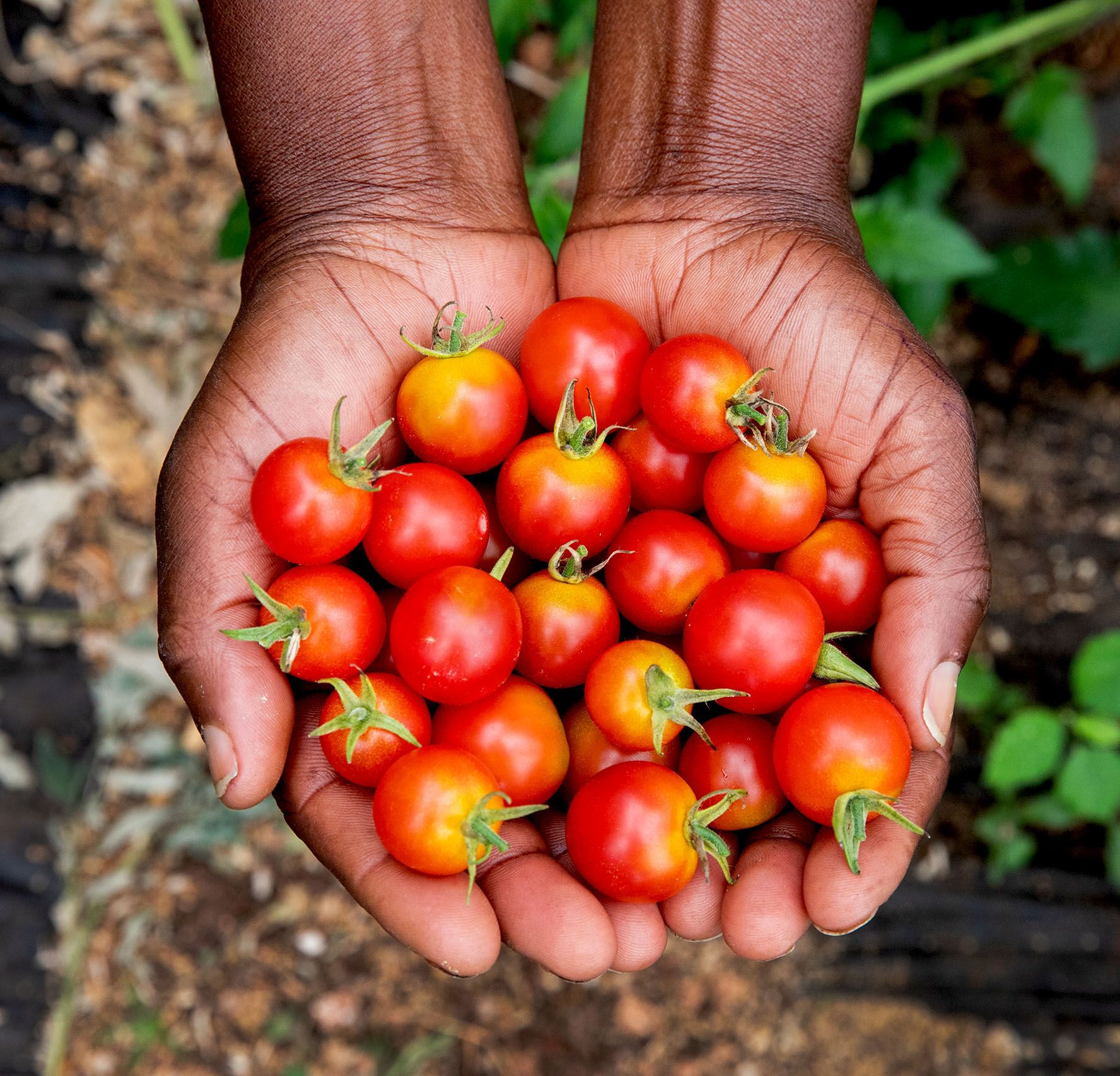
Numukobwa Dative. Photo by Julia Schmalz/IFC.
Numukobwa Dative. Photo by Julia Schmalz/IFC.
Rwanda: Innovating with Battery-powered Motorbikes
Photo by Julia Schmalz/IFC.
Photo by Julia Schmalz/IFC.
“I hope to own a house, bought from the money I’ve saved from this motorcycle.”
Before becoming an e-moto driver, 22-year-old Numukobwa Dative was unemployed and broke, relying on a family member to pay her bills. Then she came across an intriguing job possibility: driving a battery-powered electric motorbike taxi for Ampersand, a Kigali, Rwanda-based startup. Ampersand--Africa’s first electric vehicle and EV energy company--manufactures its own lithium-iron-phosphate battery, a distinctive yellow box that sits at the base of each motorcycle. IFC invested in Ampersand through the Africa Go Green Fund, and the company has grown its fleet in Rwanda to more than 4,000 vehicles sold, 424 employees, and 33 charging stations. Moto taxi drivers like Numukobwa see a 35 percent increase in income per week since they are not paying to fill and maintain a traditional motorcycle. Her goal no longer seems out of reach. “I hope to own a house, bought from the money I’ve saved from this motorcycle,” she says. “I want to have a beautiful family and have kids who are appreciative of my work as a taxi motorcyclist. They’ll see that I did something unique, something different from other young women.”
Namkhaijamts Erdenebat with a cashmere goat herder in Khentii Province, eastern Mongolia. Photo by Julia Schmalz/IFC.
Namkhaijamts Erdenebat with a cashmere goat herder in Khentii Province, eastern Mongolia. Photo by Julia Schmalz/IFC.
Mongolia: Greening Cashmere Production
Namkhaijamts Erdenebat with his mother, Davaasuren Ayursed, who founded Tumen Suljee. Photo by Julia Schmalz/IFC.
Namkhaijamts Erdenebat with his mother, Davaasuren Ayursed, who founded Tumen Suljee. Photo by Julia Schmalz/IFC.
“We can help workers increase their skills [so that] the next generation will develop and prosper.”
At a small cashmere factory on the outskirts of Ulaanbaatar, the whirring of weaving equipment and churning of washing machines signals that a shipment of cashmere has arrived. Namkhaijamts Erdenebat, the 36-year-old CEO, and his mother Davaasuren Ayursed, who founded the company, work from small offices next to the main factory floor. The two recently made a big decision: they’re expanding the company and drawing up plans for a larger, more modern factory with energy-efficient equipment. Green loans from Khan Bank, Mongolia’s largest commercial financial institution, are supporting the company through this transition. Khan Bank, with IFC support, introduced the country’s first green bond in 2023 to promote a sustainable economy, and proceeds from the green bond have funded about 100 loans for climate-friendly projects such as this one. The five-year bond helps Khan Bank grow its climate portfolio and strengthens Mongolia’s commitment to reduce greenhouse gas (GHG) emissions by 22.7 percent by 2030. Namkhaijamts is enthusiastic about the next phase, and has used the most recent green loan from Khan Bank to purchase energy-efficient weaving equipment that cuts energy consumption per unit of clothing by 21 percent. “As the CEO, and as a Mongolian, I worry about climate change. We all have to do our best to reduce CO2 emissions,” he says.
Izmir, Türkiye. Photo by Djenno Bacvic/IFC
Izmir, Türkiye. Photo by Djenno Bacvic/IFC
Türkiye: Confronting Climate Change
Ali Hıdır Köseoğlu. Photo by Djenno Bacvic/IFC.
Ali Hıdır Köseoğlu. Photo by Djenno Bacvic/IFC.
“Our partnership with IFC has been essential for helping the city address some of the environmental challenges it has faced.”
As Ali Hıdır Köseoğlu watches ferries crisscross the Bay of Izmir, climate change is on his mind. Ali, who at the time was the General Manager of Izmir's Water and Sewerage Administration (IZSU), oversaw the city's relationship with its bay. Adapting to a changing environment is a challenge, he says, noting that the city of Izmir has been impacted by rapid urbanization and water stresses, both of which have been exacerbated by climate change. The growth of the city overwhelmed the bay, which became polluted and known for an unpleasant smell. A long-term partnership with IFC has helped to address water quality issues, improve water and wastewater services, and had a positive impact on the area's wildlife and biodiversity. In 2021, this partnership helped the city address the critical challenges that existed around water supply and wastewater services, including the development of a drinking water treatment plant in Foça. This support was unique because it provided the first long-term local currency loan to a municipality in Türkiye. This first-of-a-kind loan provided price protection by eliminating currency risks for IZSU, creating an international loan tailored to local conditions.
Patricia Rakotonirina. Photo by Birom Seck/IFC.
Patricia Rakotonirina. Photo by Birom Seck/IFC.
Madagascar: Delivering Microcredit
“When we started out, we used to pay rent. Now we are owners, and we even rent out part of our property.”
Patricia Rakotonirina’s food stall opens every day at 6:00 a.m. She wakes up even earlier to prepare the rice soup, samosas, meat, and potato balls that her customers love, and she continues serving food until late in the evening. The best part, she says, is being her own boss. “I decided in 2010 to start this business because it was hard to find work. I used the little money I had to open the shop,” she says. To grow the business, Patricia and her husband turned to Première Agence de Microfinance (PAMF), a deposit and credit institution licensed by the Central Bank of Madagascar, for a microcredit loan. “Completing my loan application was easy. The customer advisers explained things in stages,” because, as she admitted, “nobody understands everything the first time.” Microcredit has been a powerful tool for her and other entrepreneurs in Madagascar because it requires little to no collateral or banking history. IFC’s Base of the Pyramid Platform, supported by the blended finance and local currency facilities of the International Development Association’s Private Sector Window (IDA PSW), helps financial service providers like PAMF deliver funding to small businesses, women entrepreneurs, and informal enterprises. Delivered in local currency, the microloans protect borrowers by reducing the risk of default in the event of currency fluctuations and contributes to more sustainable development. IFC’s collaboration with local financial institutions in Madagascar is expected to expand access to an additional 140,000 micro, small, and medium-sized enterprises by the end of 2027.
Pakistan: Supporting Women Entrepreneurs
“[There were] biases and skepticism from potential investors and stakeholders who doubted our ability to scale and sustain business.”
Halima Iqbal.
Halima Iqbal.
When Halima Iqbal sought funding for Oraan, a startup that provides Pakistani women with accessible financial services, she knew it wouldn’t be easy. She vividly remembers “biases and skepticism from potential investors and stakeholders who doubted our ability to scale and sustain business.” But when she discovered i2i Ventures, Pakistan’s first female-led venture capital fund, she knew she had found a real partner. i2i Ventures is part of IFC’s Startup Catalyst Program, which invests in incubators, accelerators, and seed funds supporting innovative early-stage startups in underserved markets. The partnership has boosted Oraan and fills a much-needed market gap. “The focus on gender diversity and inclusion, and targeted support for women-led businesses, is what makes them truly unique,” Halima says.
Jamaica: Strengthening Infrastructure
"The improvements in the airport...can help our company to attract more customers."
As the first lights of the morning shine over Kingston, Jamaica, Roger Thompson smiles. He’s thinking about the passengers who will be arriving at the Norman Manley International Airport that day—new arrivals who will register for sightseeing trips with for Kingston City Guided Tours, a small company that offers sightseeing experiences in and around Jamaica’s capital. Thompson, who oversees the firm’s operations, is focused on growing the business. He’s optimistic, because the renovation of Kingston’s airport is bringing more and more travelers—and potential customers of Kingston City Guided Tours—to the Caribbean country. "The improvements at the [airport] are enhancing the travel experience of the visitor to Kingston and making tour packages more appealing," he says. IFC was the transaction advisor to the Government of Jamaica for the successful 25-year concession to operate, expand and modernize the airport, a project that is the foundation of IFC’s Public-Private Partnerships work in the country. The effort has resulted in a substantial upgrade of the airport infrastructure and boosted the number of jobs. The airport improvements “help our company to attract more customers and show them everything this beautiful country has to offer,” Thompson says.
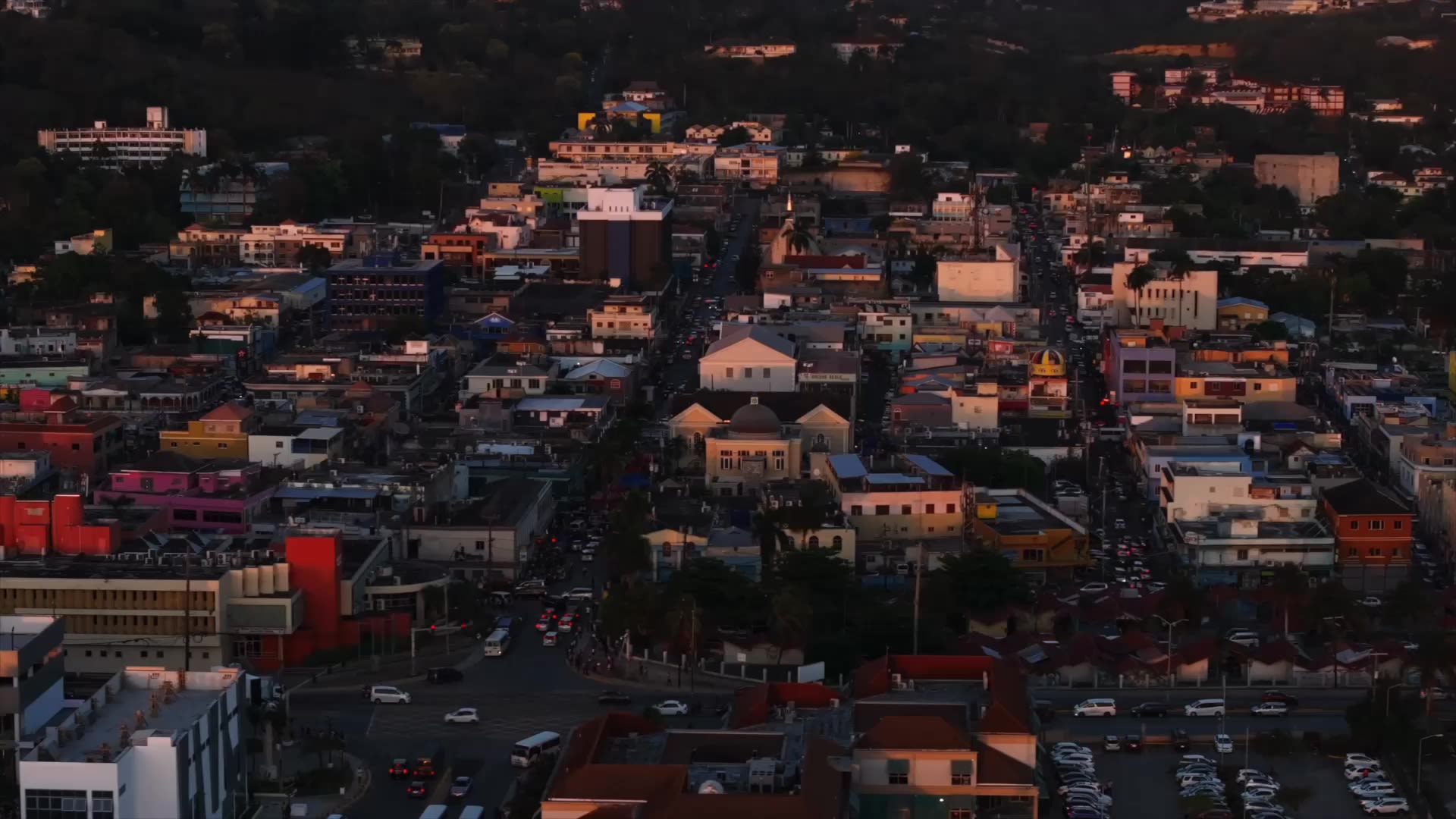
Produced by Alison Buckholtz and Julia Schmalz
Published December 2024
